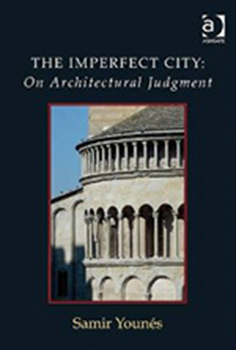Samir Younés, associate professor of architecture, has a new book, The Imperfect City: On Architectural Judgment (Ashgate, September 30, 2012), in which he argues, “If architectural judgment were a city, a city of ideas and forms, then it is a very imperfect city.” When architects judge the success or failure of a building, Younés says, the range of criteria that can be used for this evaluation causes many contentious and discordant arguments. The Imperfect City examines architectural judgment in its historical, cultural, political, and psychological dimensions, and their convergence on that most expressive part of architecture—architectural character. Younés stresses the value of reasoned judgment in justifying architectural form, a judgment based on three sets of criteria: criteria external to architecture, criteria internal to architecture, and criteria that pertain to the psychology of the architect as image-maker. He concludes that although architectural conflicts can adversely influence judgment, they can also contribute to the advancement of architectural culture.

British architect Robert Adam calls The Imperfect City a “fiercely logical theory of architecture...From now on, no discussion of architectural philosophy will be complete without reference to Samir Younés.” Luxemburger architect Léon Krier calls The Imperfect City "a significant book for anyone interested in clear thinking about architecture, about how it is evaluated, and how architectural culture is tied to several discourses."
An expert on traditional urbanism and architecture, and architectural theory, Younés served as the director of the Rome Studies Program from 1999 to 2008. He is also the author of The True, The Fictive and The Real: The Historical Dictionary of Architecture of Quatremère de Quincy.